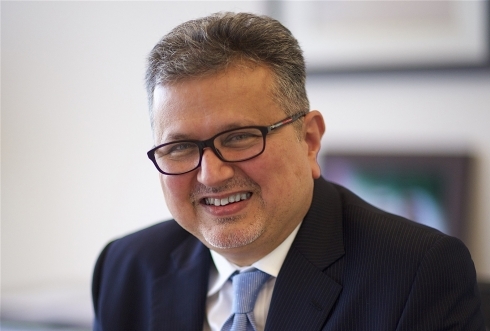
Emirates Islamic Reveals 2020 Findings of Islamic Banking Index by Emirates Islamic™
Emirates Islamic, one of the leading Islamic financial institutions in the UAE today announced the latest edition of its ISLAMIC BANKING INDEX by EMIRATES ISLAMIC™, a benchmark survey revealing the progress, penetration and perception of the Shari’a-compliant banking sector in the UAE, as well as the future intentions of the nation’s banking customers.
As a fallout of 2020’s global economic downturn due to the pandemic, this year’s edition of the Index demonstrates a small reduction in the overall penetration and intention of both conventional and Islamic products compared with 2019, while perception remains consistent with 2019.
Key findings of the 2020 ISLAMIC BANKING INDEX by EMIRATES ISLAMIC™:
Penetration
- The overall penetration of both conventional and Islamic banking in 2020 has seen a small reduction, falling 60% to 58% for Islamic banking products and from 65% to 64% for conventional banking as compared to 2019.
- In the long run, the penetration of Islamic banking products has increased gradually from 47% to 58% since 2015, while conventional banking products have seen a reduction from 70% to 64% over the years.
- The overall penetration of Islamic finance products among Muslim respondents was consistent, 70% in 2019 and 69% in 2020.
- Among non-Muslims, there was an increase in uptake in Islamic credit cards – 24% in 2019 to 28% in 2020, and Islamic savings accounts – 28% to 32%.
Perception
- The overall perception of Islamic banks remained stable at 38% in line with 2019, but has improved by 12 percentage points from 26% in 2015, surpassing conventional banking perception and showing significant improvement in areas related to service and technology.
- Compared to conventional banks, Islamic banks are observed by respondents to be more supportive of the community, being trustworthy, having lower fees and offering better finance and profit rates on savings.
- Muslim consumers continue to have a better perception of Islamic banks on all parameters, except in terms of innovation.
- Among non-Muslim respondents, there has been a remarkable increase in perception of Islamic banks providing support to the community, up from 35% in 2019 to 41% in 2020.
- Even though most non-Muslims still rate Islamic banks lower on service-related factors, their perception has improved on technology factors and see them offering better value (lower transaction fees and better profit rates).
Knowledge
- Knowledge Score pertains to customers’ ability to identify Islamic banking product structures and not just familiarity or awareness of Islamic product terms.
- Knowledge Score shows slight drop by 2 percentage points to 35% but remains consistent since 2015.
- More than 70% of respondents have heard about at least one Islamic product with Takaful and Murabahah being the most popular since 2015, while only 27% are not aware of any Islamic banking product.
- New finding: One third of total respondents stated that understanding the structure of Islamic banking influenced their decision to use a Shari'a compliant product, this figure being higher amongst Muslims than non-Muslims (41% vs. 24%).
Intention
- Percentage of customers likely to subscribe to banking products has dropped by 5 percentage points, due to the current economic situation, with Islamic products reducing from 38% in 2019 to 33% in 2020, and conventional products dropping from 40% in 2019 to 35% in 2020.
- Islamic Intention Score among customers likely to subscribe a product (percentage of those who would subscribe to any Islamic product in the next 6 months among total intenders) - showed a decrease by 3 percentage points, from 80% in 2019 to 77% in 2020.
- Value for money in financial products has grown in importance, with 36% of respondents citing better rates and pricing as a factor influencing a potential shift to Islamic financial products, compared with 33% last year, ahead of better customer service, technology and product range.
Commenting on this year’s findings, Wasim Saifi, Deputy CEO-Consumer Banking and Wealth Management at Emirates Islamic said, “No industry has been untouched by COVID-19, as consumers have changed the way they live, preferring reduced face to face contact, more time spent in the home, and financially conservative behaviour in a climate of economic uncertainty. However, while the global economic downturn has impacted consumer’s banking habits, we are pleased to see that Islamic banking continues to be perceived as more supportive of the community and trustworthy as well as having better value to customers as compared to conventional banking.”
Saifi expanded on the opportunity ahead for Islamic banks: “It is clear that the shift to digital services has accelerated during 2020, and the real test for banks going forward, including Emirates Islamic, is to continue to innovate and strengthen their digital ecosystems, to listen, learn and create deeper trust among consumers. It is more important than ever that Islamic banks focus on growing and maintaining a digital market share.”
Added Farid Al Mulla, Deputy Head of Consumer Banking and Wealth Management at Emirates Islamic, said: “For the banking industry, digital technology plays a critical role. It helps reassure consumers on the safety of their finances as well as enables them to continue their day-to-day financial requirements with a seamless, instant access from anywhere, including the safety of consumers’ homes. Banks that recognise and cater to these fundamental needs have an opportunity to not just retain consumer trust, but to potentially shape how we conduct our lives and business in the new normal. As Islamic financial institutions with a legacy of being community-minded, it is now up to us to champion this new way of life, by embracing digital solutions and creating customer-centric ecosystems to support our trusted proposition, so we can continue to do the best by our customers.”

























